This workshop is SOLD OUT.
Please sign up for the waitlist below to receive updates regarding any openings or similar future opportunities.

This workshop is SOLD OUT.
Please sign up for the waitlist below to receive updates regarding any openings or similar future opportunities.
“If the body I dance with and the body I work and walk with are one and the same, I must, when dancing, necessarily entertain the suspicion that all of the body’s movements are, to a greater or less extent, choreographed.“ -Andrew Hewitt, Social Choreography: Ideology as Performance in Dance and Everyday Movement
Ordinarily, the term “dance film” invokes a genre of film in which works of dance choreography — often from codified styles or movements of dance — are captured on camera. This term, while useful in referring to this form and its history, is often deployed with a narrowed focus, to the exclusion of the wide array of “cine-choreographic” practices existing across the film, dance, and art worlds. From verité documentary to conceptual video art, “the choreographic” flourishes and intersects across a wide spectrum of methods, often manifested in hybrid forms that resist the distinctions of fiction/non-fiction, film/art, etc. So what and how does a filmmaker choreograph? On the Choreographic: Dance and Movement in Hybrid Film Practices makes space for us to move towards and through an expanded concept of dance film, recognizing the multitude of ways that images can move with bodies.
Rather than make a sharp distinction between dance film and other filmic forms that visualize and represent movement, this workshop will investigate different strategies and methods for incorporating movement and dance in hybrid film practices. This workshop will be led by filmmaker and choreographer Sarah Friedland (Drills, Home Exercises, CROWDS), whose hybrid films and video installations visualize choreographies to elucidate and distill the undetected, embodied mechanics of social life and the body politic. It will draw upon the work of choreographers and performance artists, documentarians and archivists, cinematographers, dancers, curators and visual artists to explore different ways of thinking choreographically in filmic practices. We will unpack and present a diverse array of these practices and methods with artists working across disciplines and creative roles.
The etymology of the word choreography would suggest that the choreographic encompasses all forms of writing dance. We will consider the bounds of the “choreographic” in the composition of filmic texts, questioning how they are written, scripted, improvised, staged, fabricated, manipulated, modulated, documented, and edited in moving image works that defy and reimagine formal and genre conventions. Expanding on the knowledge and exchanges generated in the first iteration of this workshop, some questions we will address together include: How can we think of gesture study as a practice that spans filmic forms? What role can interviewing and reenactment play in staging movement in nonfiction filmmaking? In what ways can nonfiction, and archival materials, be choreographed?
The workshop is designed to balance and weave between three modes of learning and exchange: 1) interactive presentations and discussions with guest artists; 2) embodied exercises that animate the concepts presented with short prompts for home experimentation between workshop sessions; 3) instructor and peer feedback on participants’ works-in-progress. Guest instructor sessions include topics such as: methods of choreographic research, choreographing with archival material, reenactment and interviewing in choreographing non-fiction, a choreographer-dancer’s perspective on filmic collaboration, and staging ritual and routine for camera. As a workshop focused on movement, it will be consistently embodied and animated. That is, we will be moving. No prior dance experience is required and all movement will be adaptable for all abilities; we simply ask that you come with an openness to not only think, but move through, the questions posed by the workshop. The only technology required is a computer, phone, or tablet with a camera to participate via zoom. We will use the built-in camera on zoom for a number of exercises. Please come prepared with paper and something to write with. Participants’ will be given the option to present their work for feedback. If presenting, please come prepared with a short excerpt or pitch you desire feedback on.
All participants’ should come with an openness to give and receive generative and critical feedback as we form together an intimate cohort of 15 participants and 7 instructors, including conceptual artist and filmmaker Sharon Lockhart (Lunch Break, Goshogaoka, Rudzienko) speaking to the role of movement and embodiment in her body of work across film, photography, and installation. Chris Emile (NOWNESS; MEND), a dance artist, choreographer, and director, who will lead a session on the way in which filmmaking enables his choreographic work to live an extended life, moving between forms, spaces, and audiences. Artist, filmmaker, and researcher Onyeka Igwe (Specialised Technique, The Names Have Changed, Including My Own And Truths Have Been Altered) will lead a session looking at the ways in which movement in archival moving images can be used as a source for new work. To share a curatorial perspective on the presentation and circulation of dance film today, we will be joined by programmer, choreographer, and filmmaker Cara Hagan who directs Movies by Movers at the American Dance Festival. Choreographer Wen Hui’s session will explore the role of body memory in the creation of her two films Listen to Third Grandma’s Stories and Dance with Third Grandma. Filmmaker, activist, artist Jaśmina Wójcik will focus her session around the role of community collaboration, considering the artist’s responsibility and social practice in the production of her previous (Symphony of the Ursus Factory) and newest film (King Matt The First).
The workshop is best suited to filmmakers and media artists looking to bring in or expand movement and dance in their practices. As well as dancers, choreographers, and performance artists interested in bringing in or expanding moving images in theirs. Accessible for all movement abilities. If you have any specific accessibility needs please email ([email protected]) and we will find ways to make this workshop more accessible for you.
Give us an idea of who you are and why you are coming. When you register you will be asked for a short statement of interest that should briefly describe your experience and a film project (it would be great if you have a project in progress that you would present to the group during the work-in-progress critique sessions), plus a bio. There’s a spot for a link to a work sample (not required).
$295 early bird registration by November 30th, 2020 at 5PM.
$350 regular registration.
The deposit is non-refundable. Should you need to cancel, you’ll receive half of your registration fee back until November 30th. After November 30th, the fee is non-refundable.
As this is an online workshop, participants must be fully proficient using and operating their computers.
To register for a workshop, students must pay in full via card, check, or cash . After the early bird registration deadline of November 30th, course fees are not refundable or transferable and any withdrawals or deadlines will result in the full cost of the class being forfeit. There will be no exceptions. To withdraw from a course please email info-at-uniondocs.org.
In the event that a workshop does not receive sufficient enrollment, it may be canceled. Students will be notified at least 48 hours prior to the start of a cancelled workshop and will be refunded within 5 business days. If we reschedule a workshop to another date, students are also entitled to a full refund. UnionDocs reserves the right to change instructors without prior notification, and to change class location and meeting times by up to an hour with 48 hours prior notice.
Intro & Welcome by Sarah Friedland
AM: Presentation and discussion with Sarah Friedland
PM: Presentation and discussion with Chris Emile
AM: Presentation and discussion with Onyeka Igwe
PM: Presentation and discussion with Cara Hagan
AM: Presentation and discussion with Wen Hui
PM: Participants present and share their work-in-progress
Participants work offline.
AM: Presentation and discussion with Jaśmina Wójcik
PM: Presentation and discussion with Sharon Lockhart
11:00a
Warm up, inspiring references, case study, and movement exercises.
11:30a
Presentation by guest speaker + individual work-in-progress critique
12:30p
Share / Discussion / Exercise
1:00p
Lunch
2:00p
Presentation by guest speaker + individual work-in-progress critique
3:15p
Discussion \ Workshop Exercise + Critique
4:30p
Wrap up!
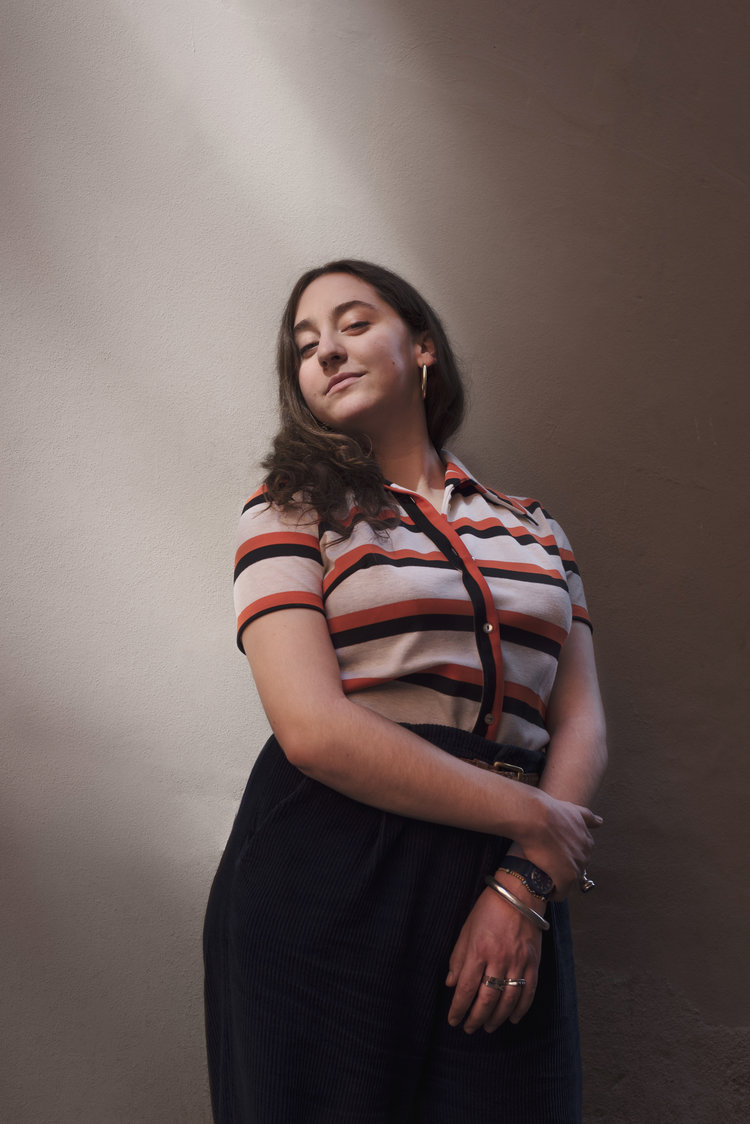
Sarah Friedland is a filmmaker and choreographer working at the intersection of moving images and moving bodies. Her work has screened and been presented in numerous festivals and film spaces including New York Film Festival, New Directors/New Films, Ann Arbor Film Festival, New Orleans Film Festival, BAMcinématek, and Anthology Film Archives, in art spaces such as Performa19 Biennial, La MaMa Galleria, MoMA, Sharjah Art Foundation, MAM Rio, Nasher Museum, Wassaic Project, and Manifattura delle Arti (Bologna), and in dance spaces including the American Dance Festival and Dixon Place, among others. Her work has been supported by the Foundation for Contemporary Arts, Film Society of Lincoln Center, Dance Films Association, Art Factory International, NYSCA/Wave Farm, Rhode Island State Council of the Arts/NEA, and Berlinale Talents where she was one of 10 selected screenwriter/directors for the 2017 Script Station/Project Lab. Sarah graduated from Brown University’s department of Modern Culture and Media and started her career assisting filmmakers including Steve McQueen, Mike S. Ryan, and Kelly Reichardt. Sarah has worked on collaborative research and writing projects with media theorists Wendy Chun on slut-shaming and new media leaks, with Erin Brannigan on the dancing body on film, and has an ongoing collaboration with writer, scholar, and programmer Tess Takahashi on masses and embodiment. Sarah is currently an AIM Emerging Artist Fellow at The Bronx Museum. In addition to UnionDocs, she is currently teaching dance film workshops at Brown, Yale, and Skidmore. www.
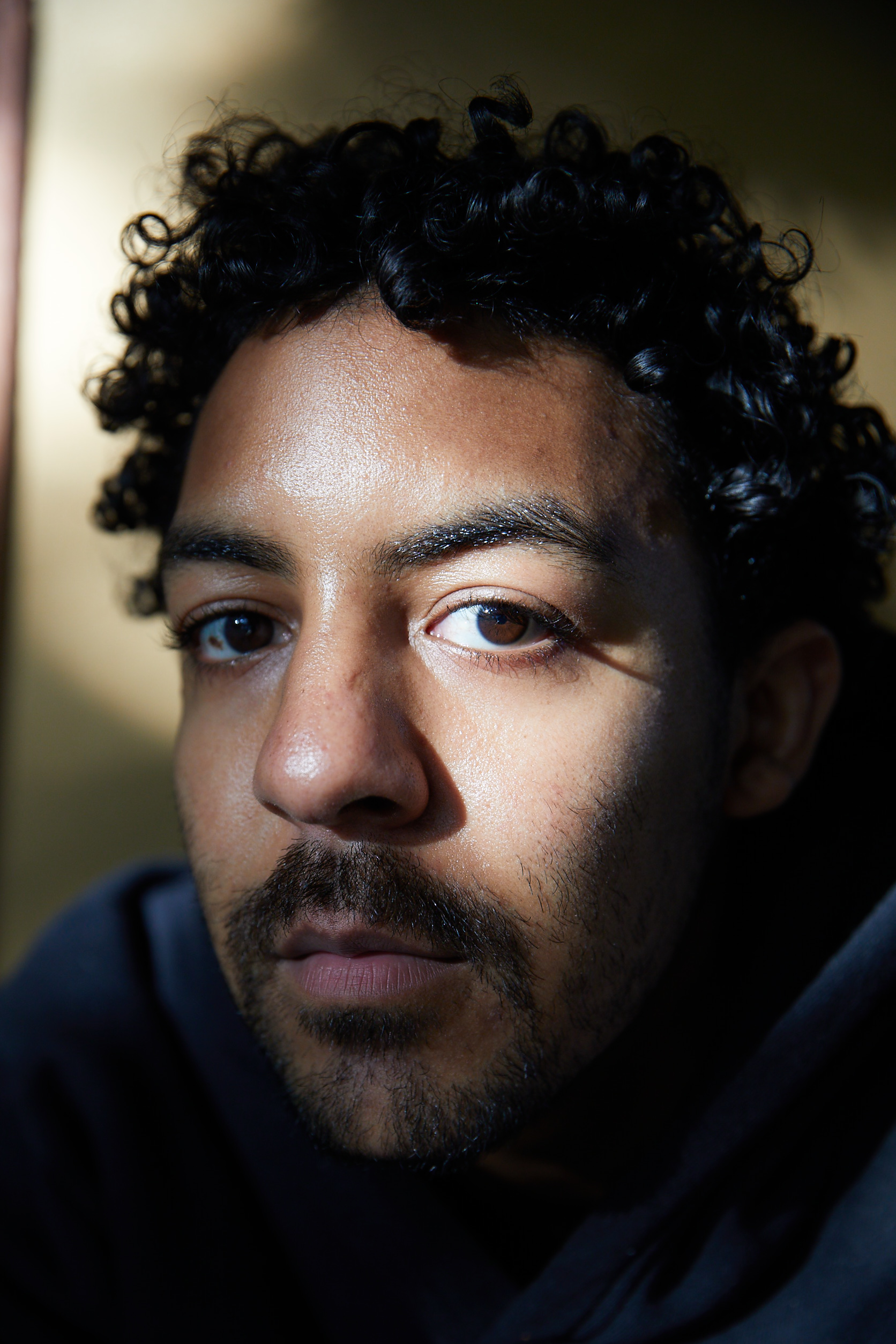
Chris Emile is an active director, choreographer, educator, and performer. He received his formal dance education from Lula Washington, Karen McDonald, the Ailey School, and holds a BFA in Dance from the Alonzo King LINES Ballet/Dominican University BFA program as a member of the inaugural class. As a dancer, Chris has performed with Alonzo King LINES Ballet, Complexions Contemporary Ballet, Morphoses, Luna Negra Dance Theater, and BODYTRAFFIC performing the works of master choreographers such as Nacho Duato, Idan Sharabi, Stijn Celis, Barak Marshall, and Gustavo Ramirez Sansano. Chris’s choreographic work has been commissioned by the San Francisco Symphony, Solange Knowles, Sao Paolo Opera, Anderson Paak, Moses Sumney, Opera Omaha, the University of Southern California, the Institute of Contemporary Art, and LA Opera for the Pulitzer Prize winning opera p r i s m where he also assistant directed. Chris’s film work has been presented by NOWNESS, 4:3 Boiler Room, CULTURED Magazine, and Art + Practice. He has been a guest lecturer at the California Institute of the Arts, UCLA, AMDA, Loyola Marymount University, Boston Conservatory, Pomona College, and UC Irvine.
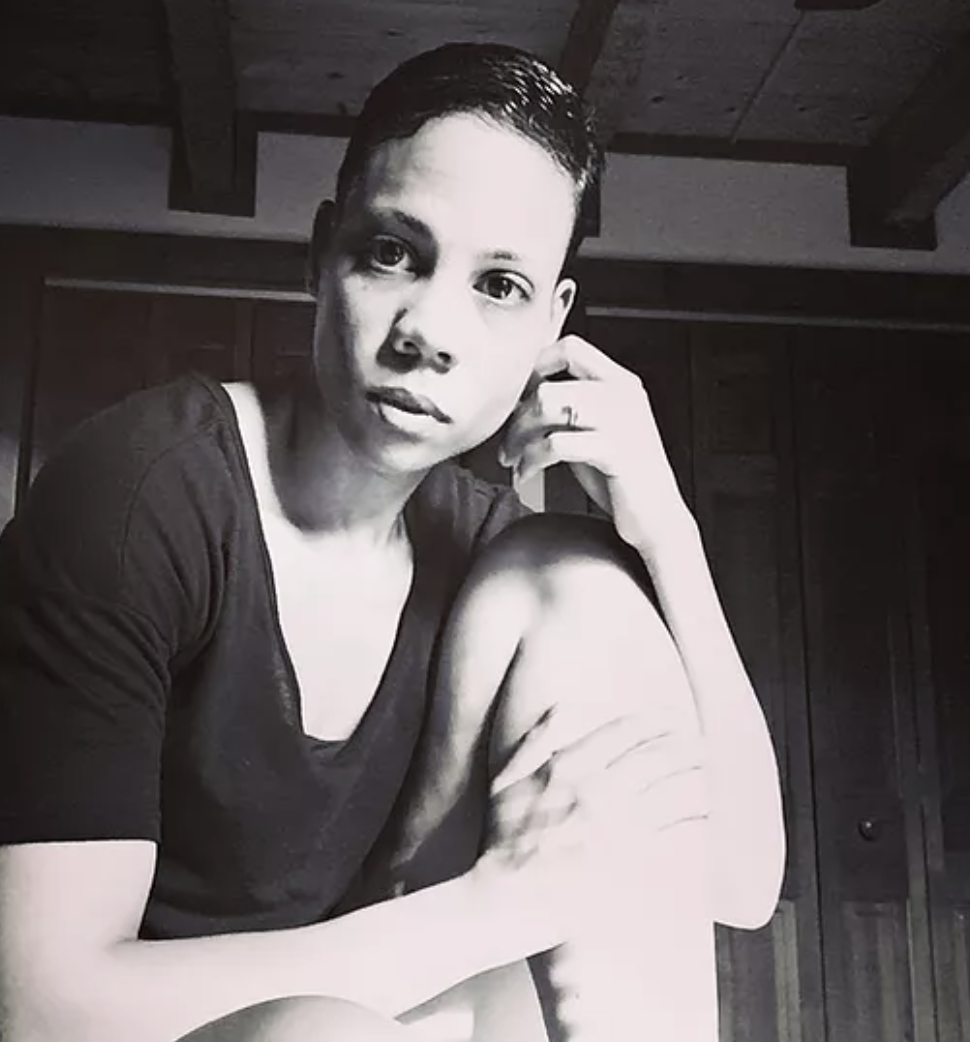
Cara Hagan is an interdisciplinary artist whose practice is informed by movement, words, digital space, contemplative practice, and community. Ms. Hagan has the pleasure of sharing her artistic pursuits across the United States and abroad. Most recently, Cara has set choreographic works on students at the UNC School of the Arts, Missouri State University, Roehampton University London, Gonzaga University, and on professional dancers at the DanceBARN Festival in Battle Lake, MN. Recent guest artist residencies include Thirak India (Jaipur), James Madison University, University of Colorado at Boulder, Bath Spa University, and DeMontfort University, among others. Further, Cara has made recent performance appearances at the Asheville Wordfest, the Taos Poetry Festival, the On Site/In Sight Dance Festival, Revolve Gallery Asheville, the Performática Festival in Puebla, Mexico, and the Conference on Geopoetics in Edinburgh, Scotland. In installation, Cara’s work has been seen at Art Produce San Diego, the Southeastern Center for Contemporary Art, Revolve Gallery Asheville, and at the Visual Art Exchange, Raleigh. A recipient of several grants and awards, Cara received the “Best Southern States Documentary” award for her short film, Sound and Sole from the Southern States Indie Fan Film Fest in Biloxi, MS in January 2019. She was awarded an artist residency at PLAYA Summer Lake for the fall of 2018 and an artist residency at Elsewhere Gallery for spring/summer 2020. She has been funded by the North Carolina Arts Council, the Forsyth County Arts Council, the Appalachian State University Research Council, the Cucalorus Festival, and the Dance Films Association, among other organizations. Ms. Hagan serves on the dance studies faculty at Appalachian State University, as well as serving as director and curator for ADF’s Movies By Movers, an annual, international dance film festival that hosts events at both the American Dance Festival and Appalachian State University. Cara’s creative work can be found in various publications, including literary journals Collective Terrain, Zocalo, Quill and Parchment, the Snapdragon Journal of Art and Healing, and Headwaters Journal of Expressive Arts. Her scholarly publications can be found in the International Journal of Screendance, the Journal of Sustainability Education, Transmissions Journal of Media Studies, and in the book, Dance’s Duet with the Camera: Motion Pictures, edited by Telory D. Arendell and Ruth Barnes. Currently, Cara is under contract to complete her first solo-authored book through McFarland Publishing.
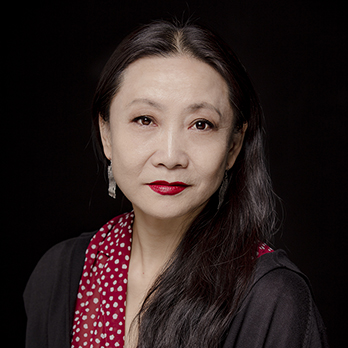
Wen Hui is a pioneer of contemporary dance in China. In 1994, she founded the leading contemporary Chinese dance company Living Dance Studio and developed her unique vocabulary of precise movements and a specific style of interdisciplinary dance. In 2005, together with her partner Wu Wenguang, she founded the independent art space for performing arts, documentary film, video art and photography CCD Workstation (Cao Chang Di) in Beijing. CCD Workstation is also the home of the Living Dance Studio and a documentary film archive.
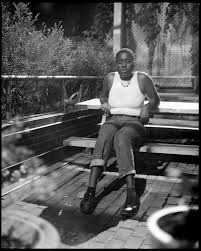
Onyeka Igwe is an artist and researcher working between cinema and installation. She was born and based in London, UK. In her non-fiction video work, Onyeka uses dance, voice, archive and text to expose a multiplicity of narratives. The work explores the physical body and geographical place as sites of cultural and political meaning. Onyeka’s video works have been screened at Artists’ Film Club: Black Radical Imagination, ICA, London, 2017; Dhaka Art Summit, Bangladesh, 2020, and at film festivals internationally including the London Film Festival, 2015; Rotterdam International, Netherlands, 2018, 2019 and 2020; Edinburgh Artist Moving Image, 2016; Images Festival, Canada, 2019, and the Smithsonian African American film festival, USA, 2018. Solo projects include Corrections, with Aliya Pabani, Trinity Square Video, Toronto, Canada, 2018, and There Were Two Brothers, Jerwood Arts London, 2019. Recent group projects include [POST] Colonial Bodies 2, CC Matienzo, Buenos Aires, Argentina, 2019, there’s something in the conversation that is more interesting than the finality of (a title), The Showroom, London, UK, 2018; World Cup!, articule, Montreal, Canada, 2018; Arguments, Cordova, Vienna, Austria, 2017; and Multiplex, Nuit Blanche, Toronto, Canada, 2016. She was awarded 2020 Arts Foundation Futures Award for Experimental Short Film and was the recipient of the Berwick New Cinema Award in 2019.
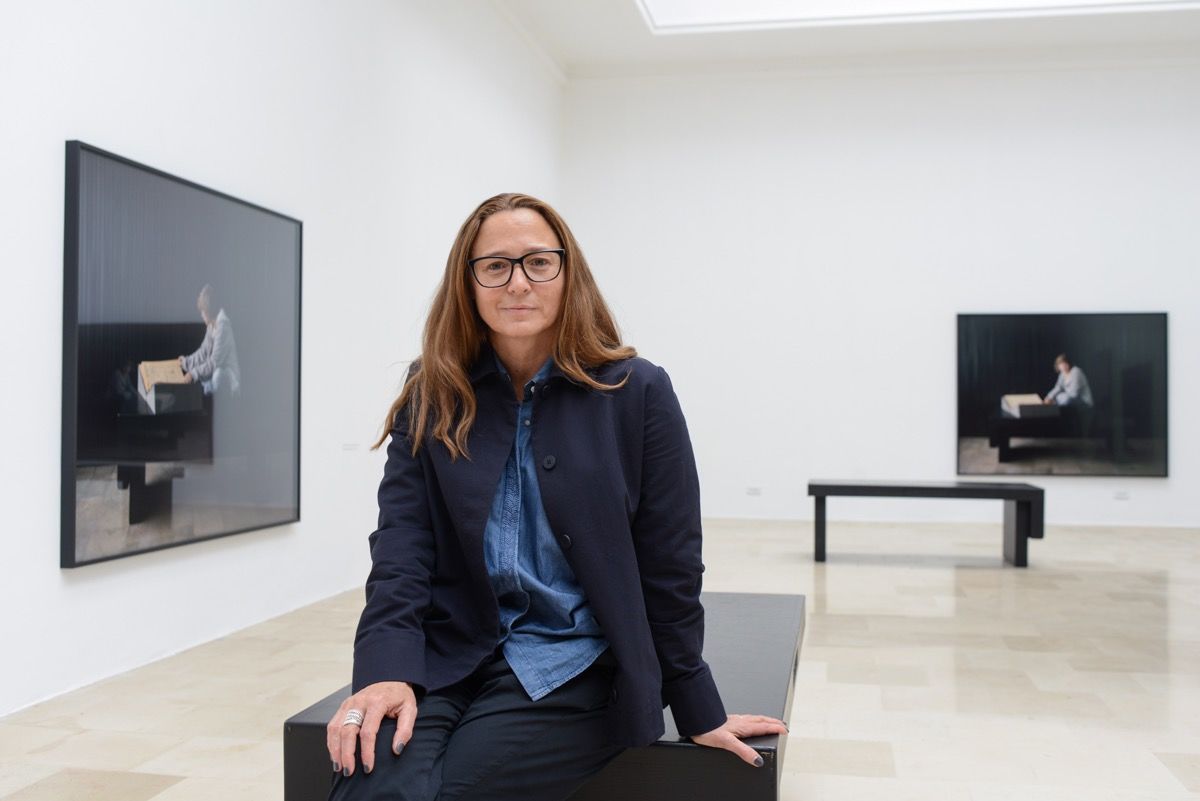
Sharon Lockhart (American, b.1964) was born in Norwood, MA, and is an American photographer and filmmaker based in Los Angeles, CA. She holds a BFA from San Francisco Art Institute and an MFA from Art Center College of Design in Pasadena. Lockhart first became known for Auditions, the 1995 photographic series in which she recruited children to re-enact a romantic scene from Small Change by Francois Truffaut. The formal, rational, and artistic approach, paired with sociological subject matter of this early series, form a duality that follows Lockhart throughout her career. In the late 1990s, Lockhart began to work abroad, creating a series of projects which addressed ethnographic filmmaking within a Fine Art context. Goshogaoka (1998), presents a Japanese girls high school basketball team performing their routine, mixed with choreographed segments. Set in the historic Brazilian theater of the same name, Teatro Amazonia captures the audience head-on as they listen to a minimalist concert—the chatter and conversation of its indifferent guests increasing as the concert progresses. In each film, Lockhart uses a stationary camera reminiscent of still photographic language. Her interest in both ethnography, and the interplay of film and photography, persist with some of her more recent works. In Lunch Break, a portrait of workers at a Maine shipyard, Lockhart pays tribute to the often controversial tradition of photographing workers, with a fresh take on the genre. For the project, Lockhart photographed the workers’ lunchboxes and exhibited the images alongside a film of the workers on lunch break in a bleak industrial environment. Lunch Break is indicative of another trademark of Lockhart’s work: While hinting at larger sociopolitical statements, the work focuses on human experience and expression by putting the spotlight on the everyday details. In 2012, Lockhart exhibited a multimedia collaboration with Noa Eshkol, an Israeli dance composer and textile artist at the Los Angeles County Museum of Art. Sharon Lockhart is Associate Professor at the University of Southern California. She has had solo exhibitions at museums such as the Museum of Contemporary Art in Chicago, the Walker Art Center in Minneapolis, MN, the Museum Boijmans van Beuningen in Rotterdam, and Kunsthalle in Zurich, Switzerland.
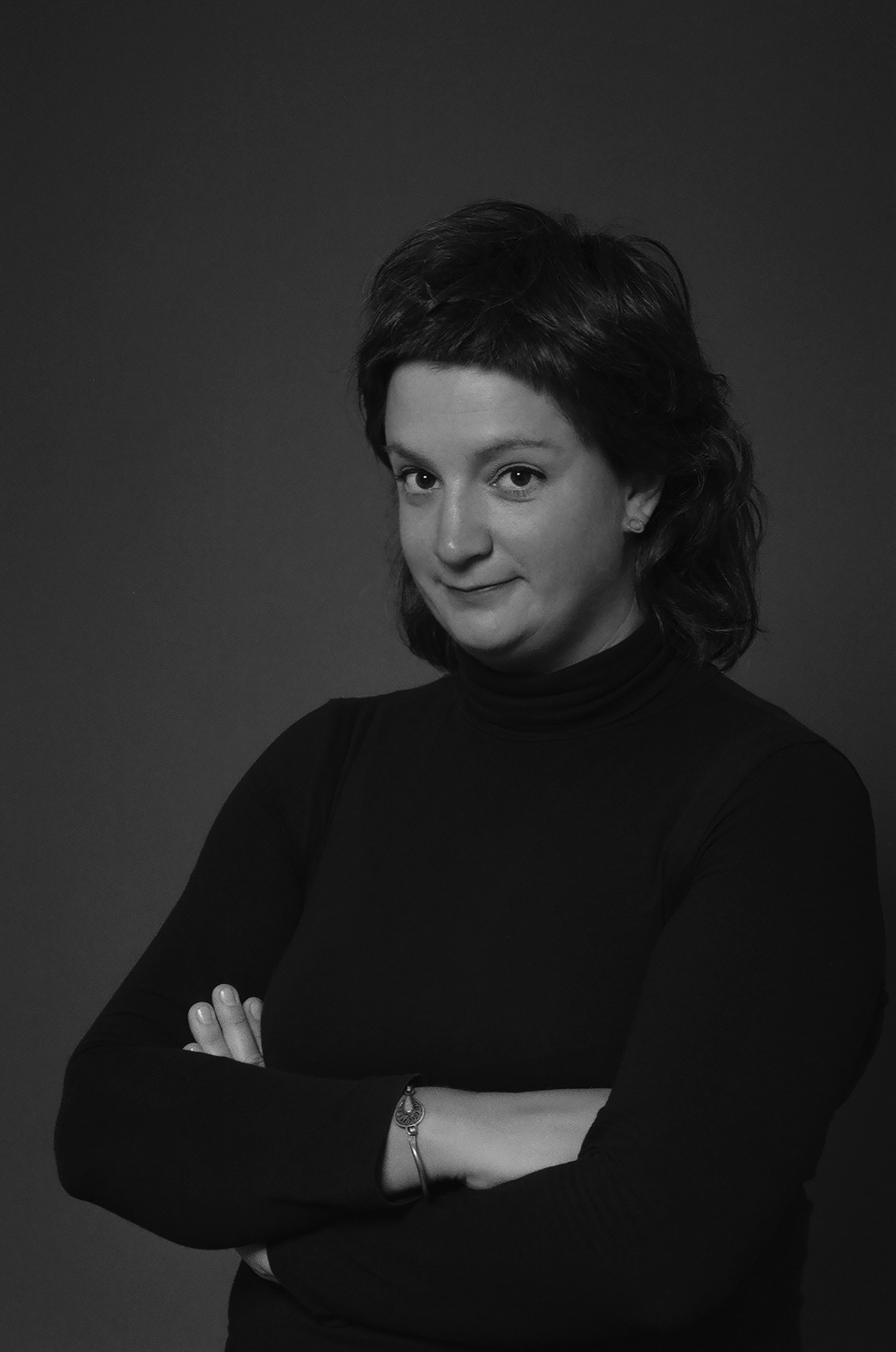
Jaśmina Wójcik visual artist, director, academic and pre-school educator. Since 2011 she has led a multidisciplinary socio-political project with former employees of the Ursus tractor factory, which includes site-specific activities in public spaces, socio-artistic actions, performances, happenings, independent film screenings and the production of the full-length documentary “Symphony of the Ursus Factory”. Film has been selected to many international film festivals and has won many prestigious awards around the world. Her work deals with the (in)visibility and self-representation of marginalized communities. She is involved in alternative education by developing authorial practices in the creation of children’s artistic expression. She believes that artists should be responsible for their own social environment and that the art (just like education) has a power to change the reality, but more importantly has a power to change ourselves. Simultaneously she works towards building interactivity within cultural institutions, by treating visitors as co-creators and interlocutors in cultural dialogue.
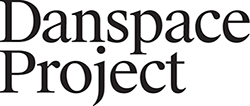
UnionDocs is grateful for support from:

Calling all AUDIO MAKERS looking for a bit of motivation, peer support, collective production and a dose of inspiration for your personal project — join us for 3 months this Fall!